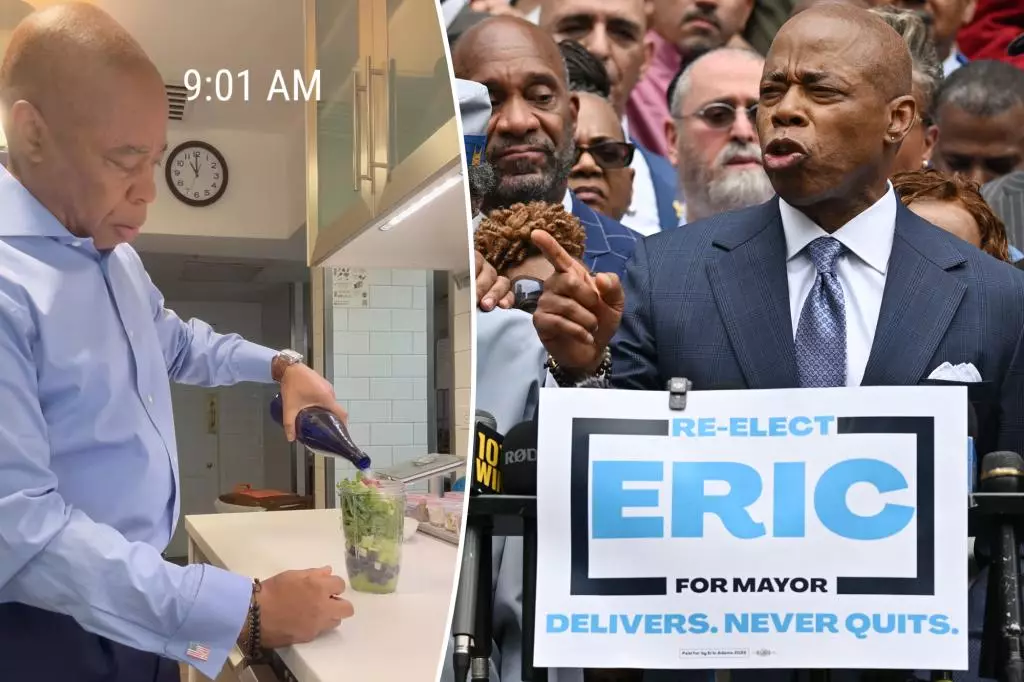Political communication is undergoing a profound transformation, and New York City’s Mayor Eric Adams is one of the most striking examples of this shift. Instead of relying on conventional press conferences or carefully scripted appearances, Adams is embracing the raw, intimate, and highly visual world of social media influencers. His intentional pivot from the typical politician’s guarded persona to an approachable digital figure reflects a deeper understanding of how modern audiences engage with public figures—influencers, entertainers, and leaders alike. By weaving everyday moments into his narrative, Adams is not just running for reelection; he is reinventing what it means to be a political leader in the digital era.
Breaking the Mold: From Suits to ‘Get Ready With Me’
What distinguishes Adams from his political peers is the distinct choice to open the door to his private life in ways previously taboo for elected officials. Posting “GRWM” (Get Ready With Me) videos or sharing his ironing rituals—activities usually dismissed as trivial—signals an attempt to humanize the mayor beyond policy papers and sound bites. This strategy directly challenges the long-held notion that politicians should maintain a pristine, untouchable image. Instead of projecting perfection, Adams opts for vulnerability and relatability. He actively invites his followers into his daily life, even proudly showcasing the mundane, like ironing pants, which followers reportedly mention to him on the street.
This approach simultaneously demystifies his office and amplifies his accessibility, fostering a sense of community between him and his constituents. It is a savvy rebranding effort that recognizes social media’s power not only to inform but to build personal connections—connections that may translate into votes in a crowded political landscape.
Confronting Traditional Media Gatekeepers
Adams’s decision to bypass traditional media platforms and lean into streaming and social media channels is a tacit admission that legacy media no longer holds a monopoly on political narratives. In his candid remarks on Don Lemon’s streaming show, Adams revealed frustration with what he perceives as insufficient or biased coverage by mainstream outlets. Leveraging platforms like YouTube and Instagram to communicate directly with the public is both an act of defiance and empowerment. It sidesteps editorial filters and allows the mayor to curate his own messaging, fostering unmediated engagement.
However, this approach walks a fine line. While direct communication holds undeniable appeal, it raises important questions about oversight, accountability, and the potential echo chamber effect. With little critical intermediation, public officials might present an overly polished or selective version of themselves—but Adams’s candidness about enjoying a cigar or a bourbon hints at an attempt to avoid such glossiness.
The Intersection of Authenticity and Political Strategy
Adams’s social media persona is not merely a tool for entertainment; it is a calculated effort aimed at embodying authenticity in a profession often criticized for artifice and spin. By portraying himself as a “regular human being” with flaws, daily routines, and moments of indulgence, he invites the electorate to see beyond the suit and tie. Authenticity, in this context, is more than just a buzzword—it’s a strategic asset that counters the alienation many voters feel toward politicians.
Nonetheless, one must critically assess the performance of authenticity. Are these glimpses into Adam’s personal life organic, or are they meticulously crafted media maneuvers? The repeated emphasis on “being who I am” and showing his true self every day could be perceived as both refreshing honesty and carefully orchestrated branding. The challenge for Adams—and politicians adopting similar strategies—is maintaining genuine transparency without tipping into superficial spectacle.
Acknowledging Past Controversies Through the Social Lens
Beyond lifestyle content, Adams also addresses significant controversies directly via digital platforms, notably his historic indictment and subsequent pardon by former President Donald Trump. By openly discussing these serious topics in the familiar, personal tone established through his social media presence, Adams reframes his narrative. He asserts his innocence and portrays himself as a victim of unjust targeting, rather than a typical politician dodging scandal.
This candid approach differs markedly from traditional crisis management, which often emphasizes tight control and obfuscation. Adams’s readiness to confront past accusations publicly aligns with the candidness he cultivates online, reinforcing his brand of transparency. Yet, this tactic carries risks: it places sensitive subjects front and center, demanding that his audience parse legal complexity alongside day-to-day content.
The Future of Political Influence: The Mayor as an Online Personality
One cannot overlook the implications of Adams’s strategy for the evolution of political leadership. By blending influencer culture with governance, he blurs boundaries that were once distinct. This melding has the power to rejuvenate political engagement among younger, socially connected demographics, making politics feel more accessible and less hierarchical.
However, this fusion also risks reducing complex governance into bite-sized entertainment, potentially trivializing serious civic discourse. While social media offers potent tools for connection, it demands a careful balance to ensure that the pursuit of likes and shares doesn’t overshadow policy depth and accountability.
In short, Mayor Eric Adams is spearheading a bold experiment in political communication—one that humanizes the office but simultaneously challenges traditional norms of leadership and media interaction. Whether this strategy proves sustainable or becomes a fleeting novelty remains an open question, but it undeniably underscores the growing influence of digital culture on the political sphere.

